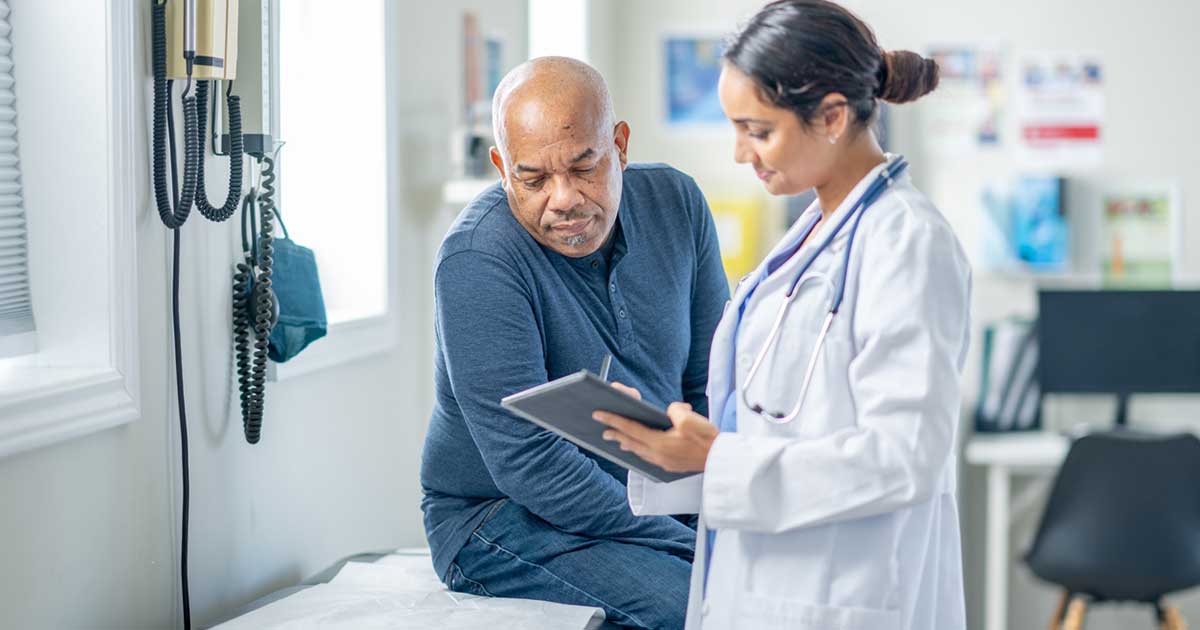What to Know and Do Before and After Hip Replacement Surgery
Advice to improve your movement, fitness, and overall health from the world's #1 in orthopedics.
If you’re scheduled for hip replacement surgery, you probably have lots of questions. Here’s what to know to make sure everything goes smoothly before, during, and after your procedure from Cynthia Kahlenberg, MD, MPH, an orthopedic surgeon specializing in hip and knee reconstruction at HSS Stamford.

Preparing for Hip Replacement
Being in good shape going into surgery will help you come out in better shape. “Chronic conditions like obesity, diabetes and heart disease can potentially increase your risk of complications during and after hip replacement more likely,” says Dr. Kahlenberg. Speak to your primary care physician, as well as any specialists you may see, such as a cardiologist or endocrinologist, ahead of time to help you optimize your health pre-procedure.
If you smoke, stop now. Research shows that quitting one to two months before surgery can help lower your risk of complications.
Prioritize eating healthy. Try to get your weight as close to a normal range as possible. There’s no magic pill or potion, but a diet rich in vegetables, fruits, whole grains, healthy fats and moderate amounts of lean meats can make a world of difference. Get into the habit of getting enough protein now, because after the surgery, your body will need it to heal and rebuild.
Stay active as much as you can. If you’re experiencing pain, “do a gentle exercise program with whatever you can tolerate,” says Dr. Kahlenberg. “Walking for exercise is beneficial to keep your muscles and the rest of your body strong.”
Ask the right questions to help you prepare. Knowing what you’ll be able to do, as well as what you’ll need after surgery, will help you organize beforehand. Some questions you could ask your doctor include:
- Are there any activities I absolutely shouldn’t do post-operation, and for how long? “There’s so much variability, depending on the surgeon and the patient, so speak to your doctor about what you can and can’t do,” says Dr. Kahlenberg. “Be sure to discuss specific activities that are important to you so that you have the appropriate expectations on when you can return to these.”
- Will I need any medical help to deal with bandages, swelling or drainage? Most people are able to manage on their own, but others may need help.
- Should I buy any equipment to use while recovering, like a commode, shower chair, walker or cane? “Exactly what you need depends on the doctor’s approach, as well as the surgeon’s expectation of your recovery,” says Dr. Kahlenberg.
- How long until I can drive a car? Usually this can happen when you’re off any narcotic medication and you feel comfortable moving your leg freely. “Most patients with a left hip replacement will go back to driving a little bit earlier than a right hip replacement,” says Dr. Kahlenberg.
- When will I be able to go back to work? Those with a desk job will probably be able to go back within a few weeks. If your job requires a lot of walking or heavy lifting, you’ll be out longer.
- What kind of pain management will be available to me? “At HSS, we use a multimodal pain management approach, which means we use different techniques together,” Dr. Kahlenberg says. “This includes regional anesthesia, anti-inflammatory medication, non-narcotic pain medication like Tylenol, and narcotics only as needed.” Research shows that pain is best managed this way.
- What surgical approach will you be using? “There’s an anterior [front] and a posterior [rear] approach, both of which have pros and cons,” says Dr. Kahlenberg. Many surgeons will base their approach on the patient’s anatomy. “One isn’t better than the other, but it’s always good to understand the rationale behind your surgeon’s decisions,” says Dr. Kahlenberg.
Preparing for Post-Operative Life
Prep your home and your after-care team. Line up someone to drive you home from the hospital and pick up any post-surgery prescriptions you may need. If you live alone, fill your freezer with healthy meals, stock up on high-protein snacks and look into meal- and laundry-delivery services. Also make sure your home is as hazard-free as possible: Remove tripping risks, like cords, loose rugs and any other clutter, and survey your furniture setup to make sure all paths are clear. Your home should be well-lit (don’t forget night lights!), and you should store things you’ll need frequently (like silverware and the coffee maker) within easy reach.
Put your physical therapy plan into place before surgery. You’ll likely be starting physical therapy very soon after you leave the hospital, so setting things up before surgery will prevent delays later. Ask your doctor as well as friends and family for recommendations of good PTs in your area and call now to make sure they take your insurance
Managing Expectations Post-Operation
Talking to your surgeon about what to expect is key to a sensible outlook. Recovery depends on your age, your general health and how active you were before surgery, as well as the surgeon’s skill, approach and the hospital itself, says Dr. Kahlenberg. So ask what your surgeon expects for you in terms of recovery.
And make sure to bring up specific activities that you want to get back to after surgery. Talking about what you may or may not be able to do after surgery will help keep your expectations reasonable. “Find out what your surgeon expects in terms of returning to those activities, which is quite variable, depending on the patient,” she says. “If you haven’t run a marathon in 30 years, for example, you probably won’t be able to run one after a hip replacement.”
Published 6/5/2024





